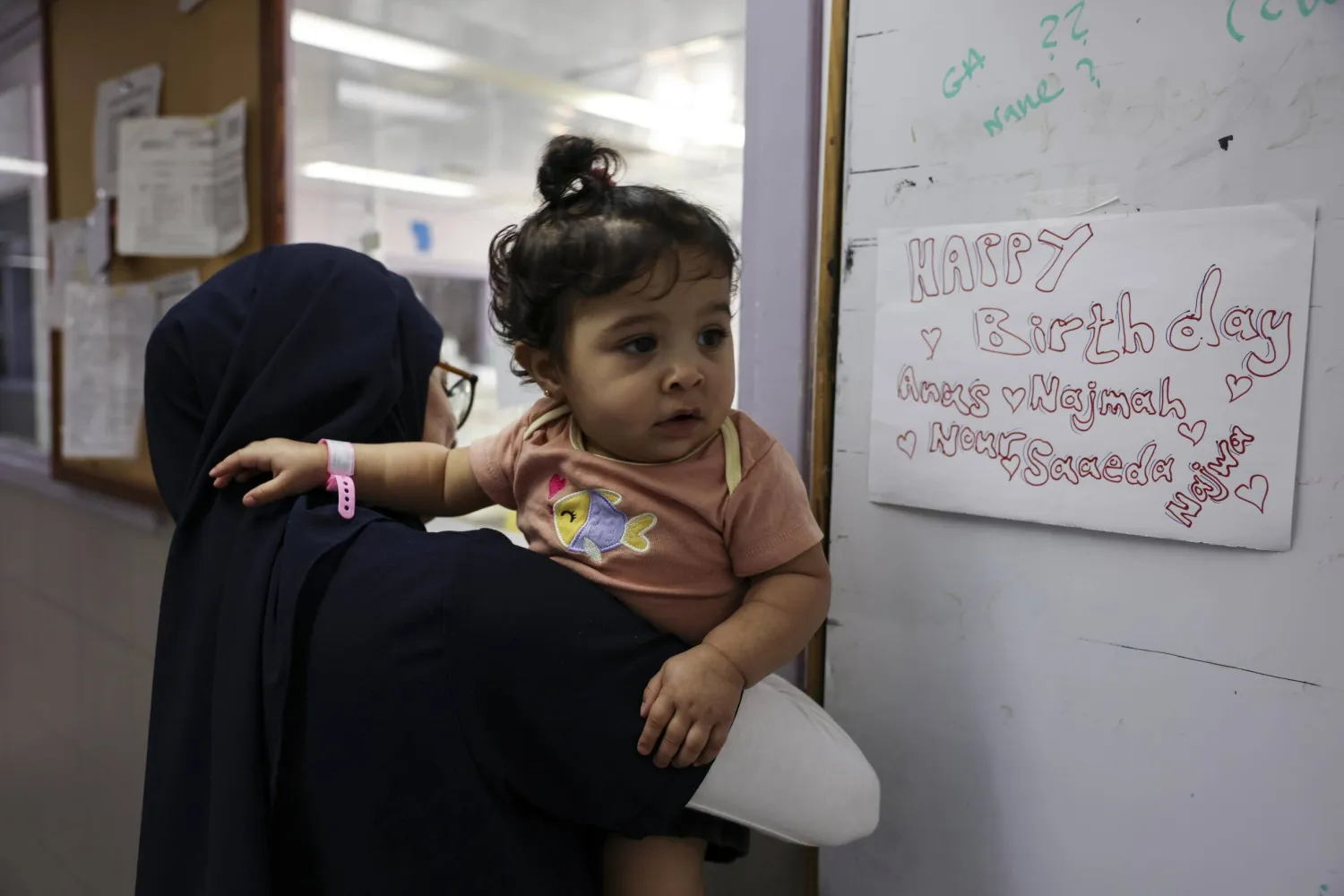As their first birthday approaches, the triplets Gaza-native Hanane Bayouk gave birth to in Jerusalem before the war have seen their mother just once, and she fears she will "die without them".
The 26-year-old had to return to the Palestinian territory alone after giving birth to Najoua, Nour and Najmeh on August 24, 2023, because her Israeli travel permit had expired.
Bayouk received a permit to exit Gaza and give birth in annexed east Jerusalem's Al-Maqased hospital after seven years of painful IVF procedures.
She caught a glimpse of her children in their incubators, "barely an hour and a half", before driving back to Gaza after her permit "expired and the hospital told me to leave".
Bayouk was supposed to return in early October after her daughters had spent several weeks in incubators, which were in short supply in hospitals in Gaza even before the Israel-Hamas war erupted last October.
'Far from the war'
Two days after she applied for a new exit permit on October 5, Hamas commandos blasted through the Erez terminal, the only entry point from Gaza into Israel.
Once in Israel, the militants carried out an unprecedented attack that left 1,198 people dead, mostly civilians, according to an AFP tally based on Israeli official figures.
Israel's retaliatory military campaign has killed 40,265 Palestinians in Gaza, according to the Hamas-run territory's health ministry, which does not give details of civilian and militant deaths. The UN rights office says most of the dead have been women or children.
Like Bayouk, Heba Idriss found herself surrounded by war and unable to return to Jerusalem to get her only daughter, Saida, born prematurely at the Maqased two months earlier.
The 27-year-old had hoped to bring her newborn back to her husband Saleh at their home in Shujaiya, in the northern Gaza Strip.
Instead, the couple has been displaced nine times by Israeli air strikes or evacuation orders and her husband Saleh has only seen pictures of Saida.
"I want to see my daughter, I suffer so much from being separated from her", she said in tears.
Hanane Bayouk too has been forced from her home and now lives in a displacement persons' camp in the south, sharing a tent with seven of her in-laws.
"It drives me crazy. It took me so long to get pregnant, and now I'm crying all the time," she told AFP on one of the rare days she was able to get through on Gaza's struggling phone network.
"Sometimes, I think I'd like for my daughters to return to Gaza before I die because I have never kissed them, but then I get a hold of myself and tell myself it's better for them to be safe far from the war," she said.
Back at the Maqased, neonatal intensive care unit director Hatem Khammach says that in normal times, there would not have been space to keep Nour, Najmeh, and Najoua for so long.
'I cry every time'
But the number of births at the hospital has fallen sharply as Israel has stopped issuing travel permits to mothers from Gaza and slashed the number given to mothers from the occupied West Bank.
With more checkpoints closed more often, even those with a permit struggle to access specialist treatment in Jerusalem.
"Before the war, we had seven or eight Gaza babies in our department, which can host 30 at a time," Khammach said.
Since October, none have come, "and many sick people from the West Bank can't reach us".
But the hospital's health workers keep busy, like those who call Bayouk to let her speak on the phone to her three daughters.
"My husband can't do it. I do it and I cry every time we hang up. I'm afraid my daughters will grow up without knowing me," Bayouk said.
The Gaza Mothers Separated from Their Newborns by War

The triplets' mother says she was forced to return to Gaza without her newborns because her Israeli travel permit had expired and they needed the specialist neonatal care only the Al-Maqased Hospital could provide. HAZEM BADER / AFP

The Gaza Mothers Separated from Their Newborns by War

The triplets' mother says she was forced to return to Gaza without her newborns because her Israeli travel permit had expired and they needed the specialist neonatal care only the Al-Maqased Hospital could provide. HAZEM BADER / AFP
لم تشترك بعد
انشئ حساباً خاصاً بك لتحصل على أخبار مخصصة لك ولتتمتع بخاصية حفظ المقالات وتتلقى نشراتنا البريدية المتنوعة







